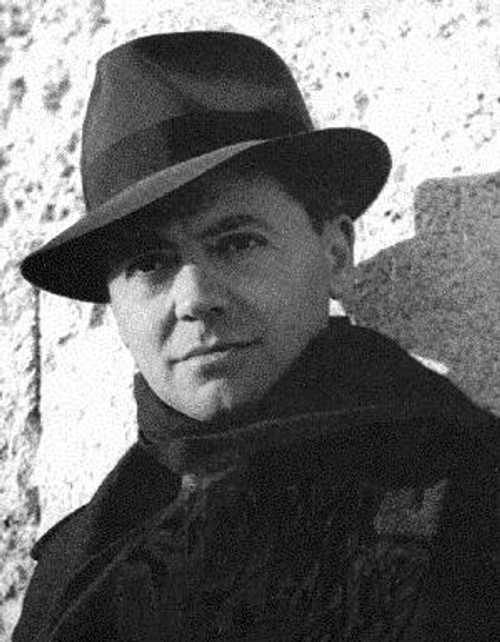
Homefront
Jean Moulin
Jean Moulin, a.k.a. "Max," was a left-wing civil servant turned resistance fighter, famous for uniting all the French resistance groups. Part of his story: After the German invaders took Chartres in 1940, Moulin, then prefect of Eure-et-Loir, attempted to guarantee the safety of the town's citizens by meeting with some German officers. Unfortunately the officers wanted him to sign a document confirming alleged atrocities committed by Senegalese French soldiers in the area. Moulin was reluctant to do so without proof, and the officers became agitated. They knocked Moulin down and started kicking him. Then in order to furnish his "proof" the two officers pushed him into a car and drove him to a hamlet of La Taye where he was led to a large barn. One of the officers threw open the doors saying, "How's that for evidence?" His book Premier Combat describes the scene that he encountered there: "He waved his hand at nine bodies lying side by side, swollen, disfigured and shapeless, with torn and stained clothes. You could hardly distinguish their sex, and there were several children among them... The Nazi said: 'That's what your charming niggers have done.' I replied: 'These unlucky people have been hit by shells...'" They shoved the prefect towards a corner where the limbless trunk of a woman lay on a table. A German gave Moulin another push towards the body, and the door was closed. Moulin wrote: "I was projected onto human debris. It was cold and sticky, and my own bones turned to ice. In this dark corner, overcome by the nauseous odor from the bodies, I shivered feverishly." The Germans finally opened the door and came in with the affidavit. They tied his wrists with a dog leash. For hours, Moulin was brutalized and badly beaten for refusing to sign the protocol. Late that night, the Germans led him to a cell, jeering: "Since you love niggers, we've given you one to sleep with." As Moulin stumbled forward into the cell, he saw a Senegalese soldier, crouched in the corner. He too had been beaten by the Germans. Moulin wrote: "I realize I am now at the limits of my endurance, and if they start again tomorrow, I will end up by signing. It was a terrible choice: to sign or die." He concluded that to sign would be to dishonor both the French army and himself. Moulin looked around and saw that the floor was covered with shards of glass from windowpanes. He "knew at once what these fragments could do. They could cut a throat as easily as a knife could." A few hours later a German guard, making his rounds, found Moulin in a pool of blood. The Germans were forced to take him to the hospital. A German officer told a nun in charge of the hospital: "You didn't know, did you, Sister, that your prefect had special tastes. He wanted to spend the night with a negro, and look what's happened to him." But they could not prevent hospital attendants from learning the truth and spreading it through the village. In those dark days of humiliation and sorrow, Moulin became a local hero. As a resistance fighter, he often wore a scarf to hide the distinctive scar on his neck. http://www.geocities.com/resistancehistory/resistance.html
3703 Views
7/25/2008
